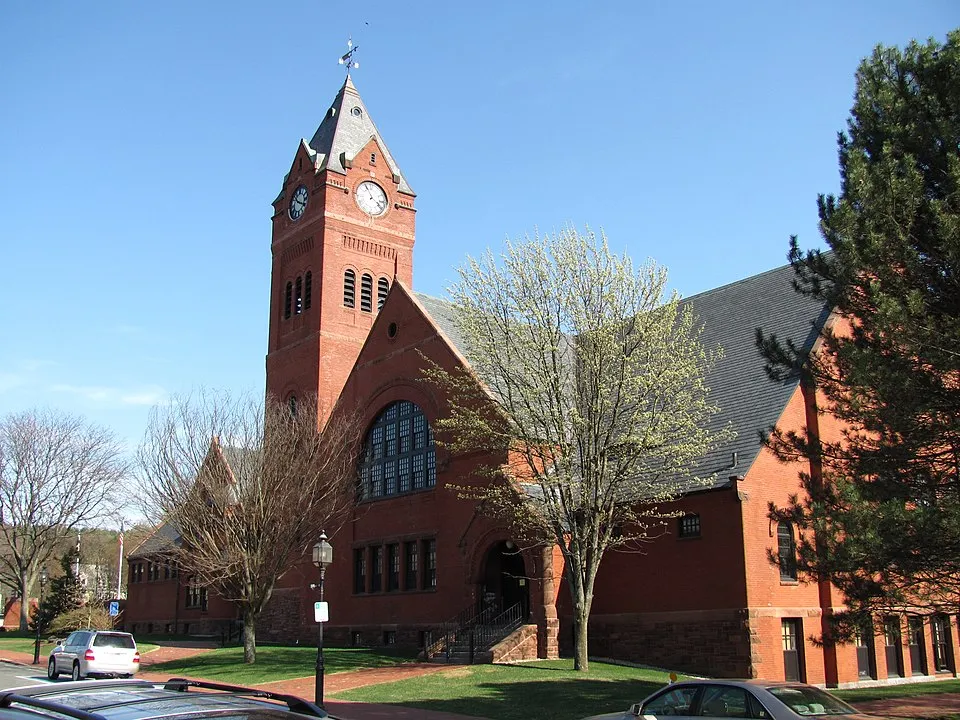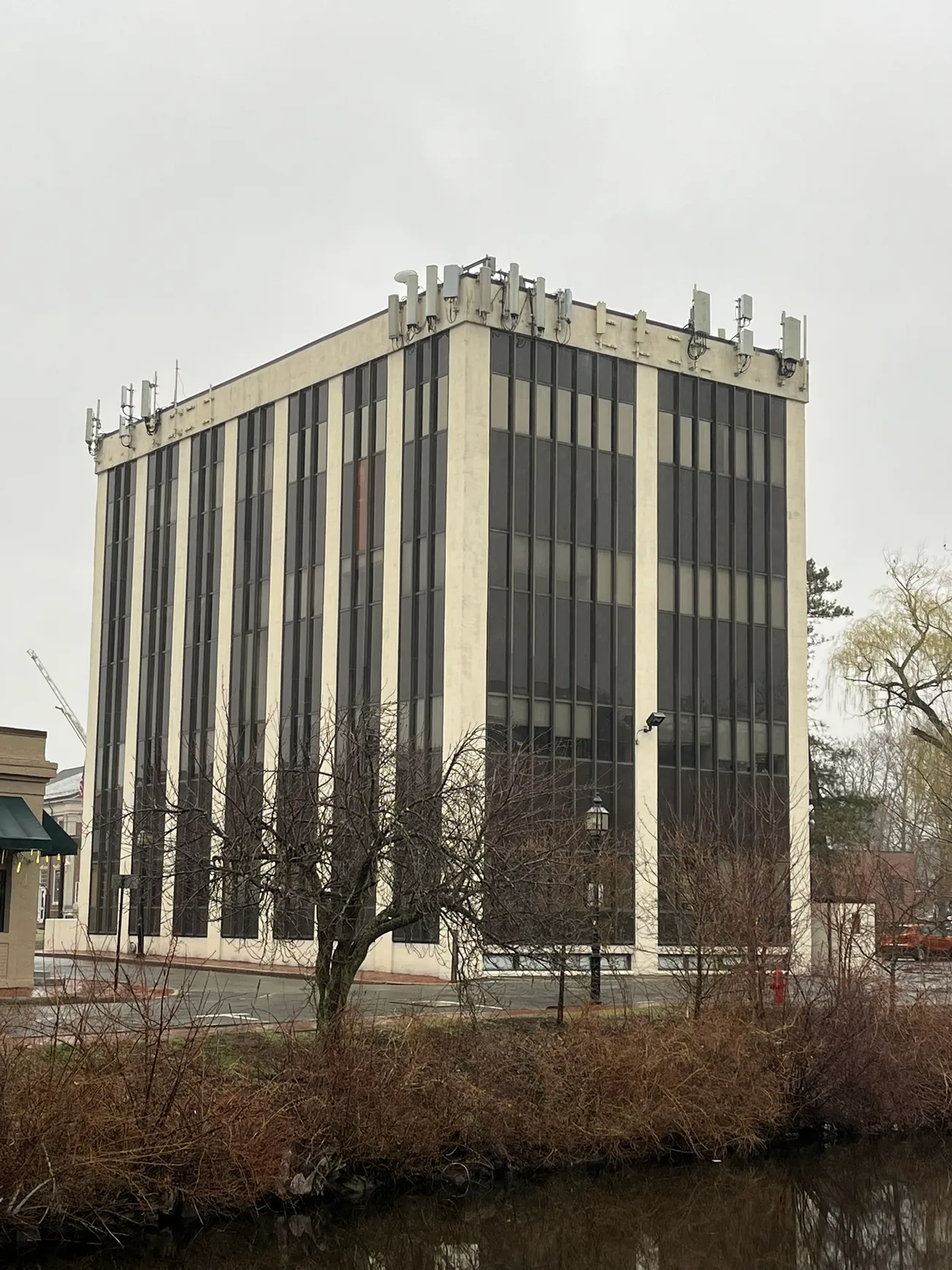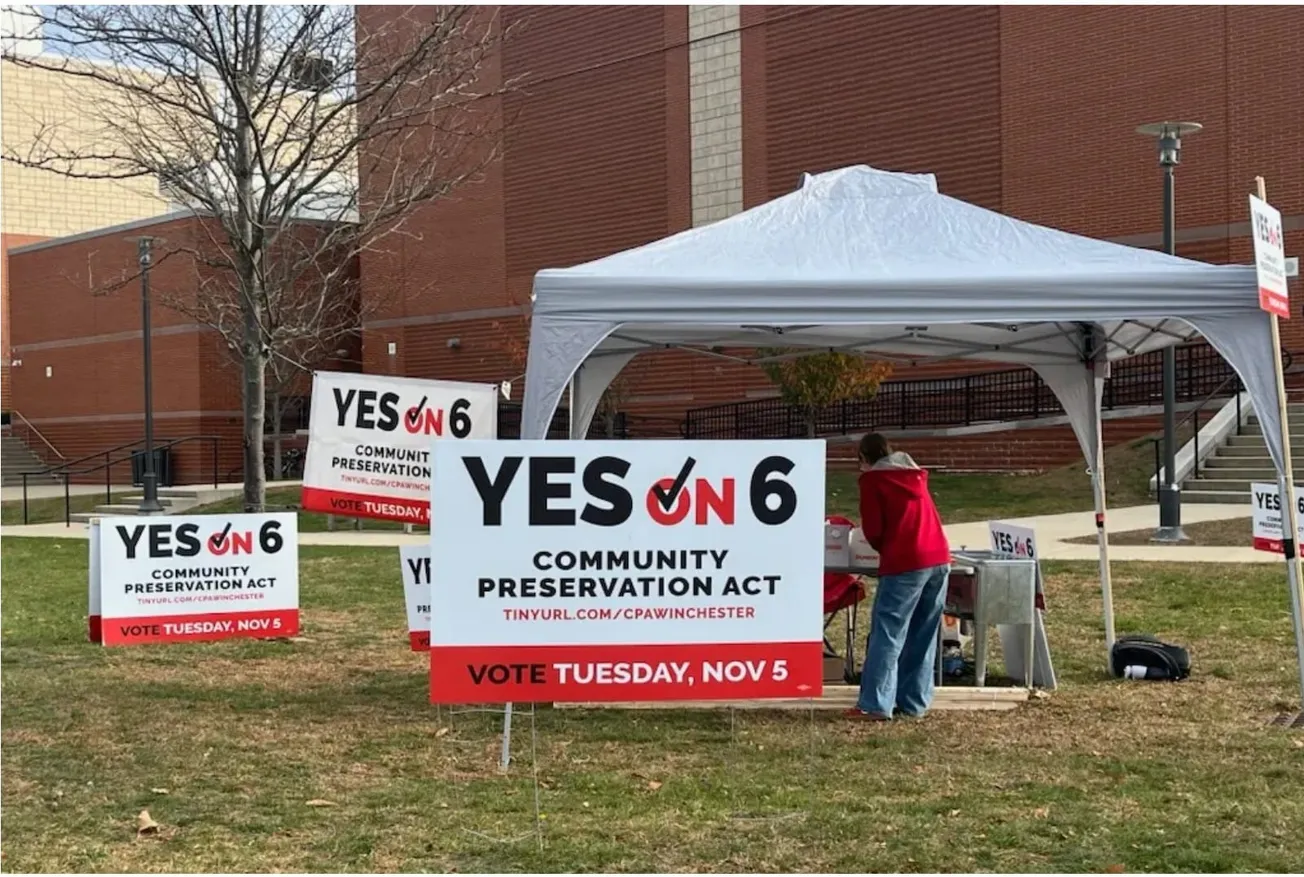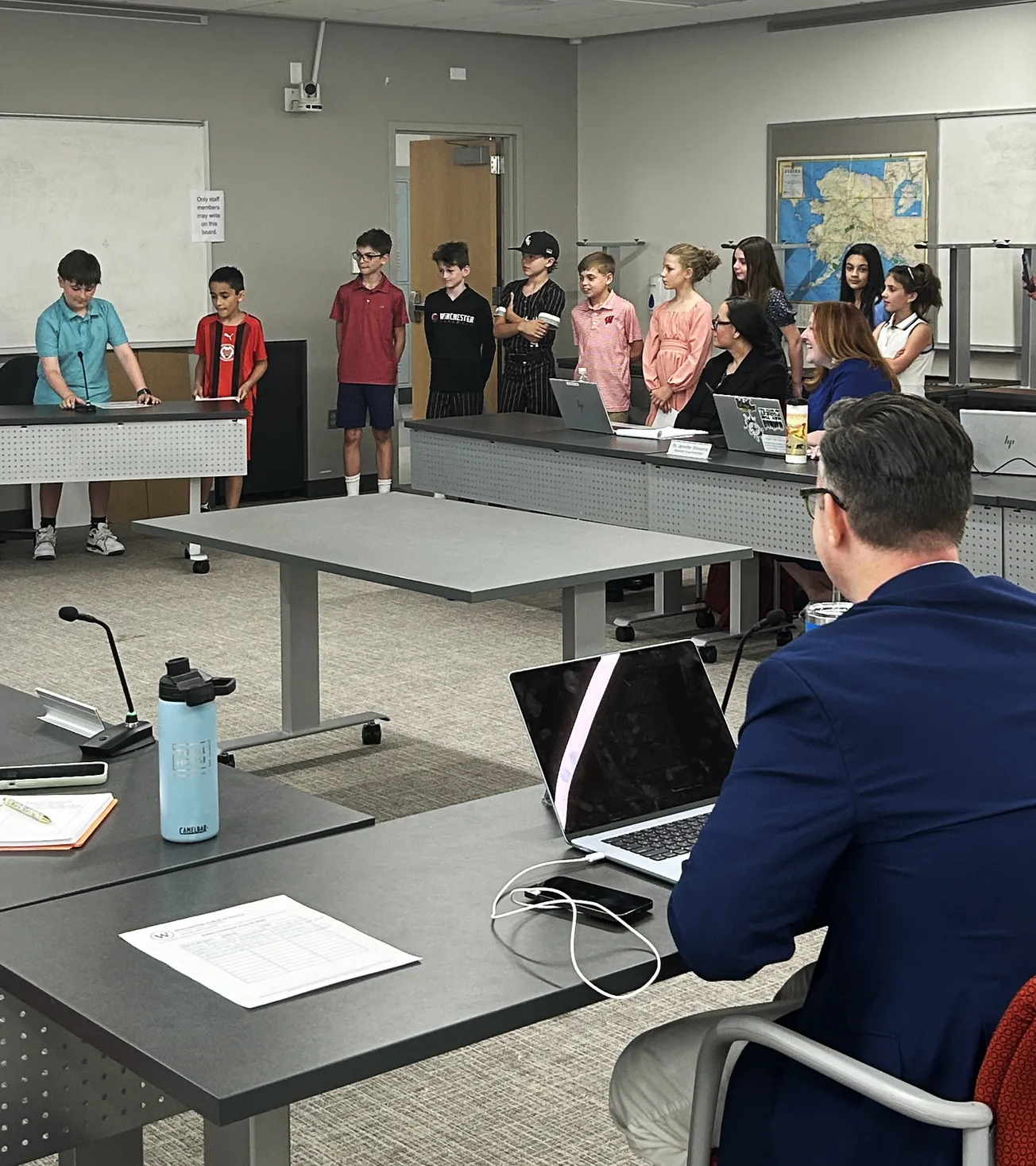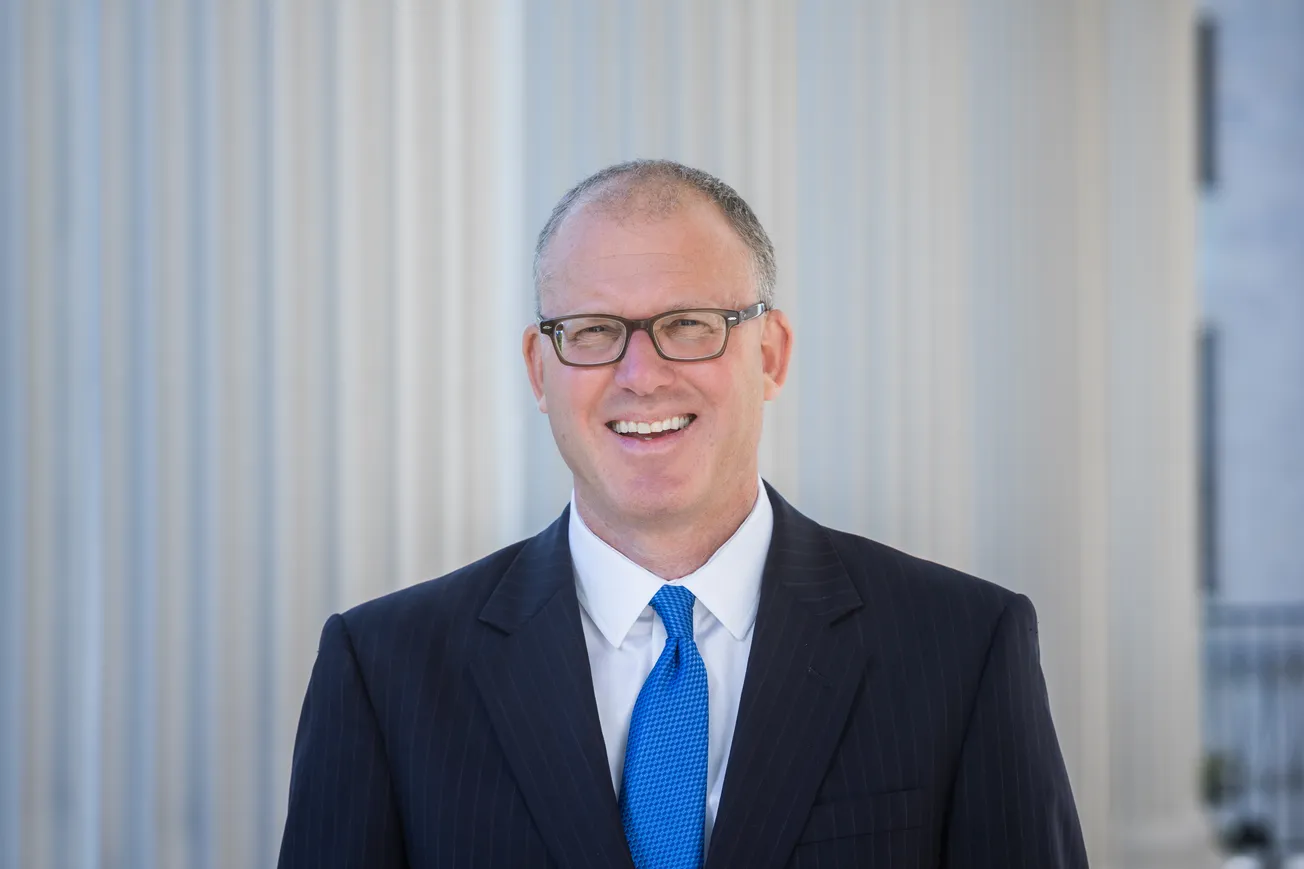Table of Contents
With just days before the start of Spring Town Meeting, Winchester officials are holding public hearings to give residents the opportunity to ask questions or comment on the 37 articles on the warrant.
Town Manager Beth Rudolph held a hearing April 24, addressing the articles on the warrant with the exception of Articles 14, 15, 18 and 27 through 31, which are financial issues and in the purview of the Finance Committee.
The Finance Committee was expected to hold its own separate hearing on April 25.
“This hearing is not to debate the articles before us,” Rudolph said. “That is reserved for the floor of Town Meeting, but we’re here mostly for informational purposes so that people can be more familiar [with the articles and] so that we can hopefully answer your questions.”
The night kicked off with Article 9, which would adopt the Community Preservation Act, and enact a 1.5% surcharge on property taxes. Exemptions would be made for residents who qualify as low income and low- or moderate-income senior housing.
The CPA was signed into law Sept. 14, 2000 by Gov. Paul Cellucci. According to the Community Preservation Coalition, “preservation monies are raised locally through the imposition of a surcharge of not more than 3% of the tax levy against real property, and municipalities must adopt CPA by ballot referendum.”
Select Board member Michael Bettencourt said the 1.5% surcharge was reached based on the needs of the town.
“So, it’s a healthy surcharge,” Bettencourt said. “We felt that it was kind of right in the middle of what we could ask and it gives us an opportunity to be strategic about funding certain priorities for the town and relieving some pressure on the capital and building stabilization fund and really also taking care of some strategic priority sound like affordable housing and historic preservation.”
The CPA can be used for projects in the areas of recreation, open space, affordable housing and historic preservation.
Residents questioned who would pay for administrative costs, whether the CPA could be repealed and who would decide on project priorities.
Both Bettencourt and Town Counsel Jay Talerman said costs would be paid from the CPA fund, the act can be repealed only after five years and that none of the 200 communities that have adopted it have repealed it. The town already has a list of projects that would qualify under the CPA.
Bettencourt said the plan is for Town Meeting to approve the CPA and bring the referendum before the entire town for a vote on Nov. 5. Meanwhile, the town will begin its own information campaign.
“Article 9 is to put it on the ballot for voters and if it’s approved, then a committee is created around how to disperse the funds and how to establish priorities and how to work with other stakeholder groups that are relevant to the purpose of the CPA,” Bettencourt said.
Other articles
While most of the evening skipped quickly through articles centering on process — such as adopting board and committee reports and allowing the town to enter into agreements and accept state funds — questions arose around Article 6, which would give the Retirement Board an annual stipend of $4,500, upcoming Capital Planning Committee, school projects and a hike in water and sewer rates slated for March 1.
While Winchester residents in elected offices and who serve on many boards and committees are volunteers, Article 6 could possibly open the door for them to receive compensation for their time and efforts while serving the town. The only stipend currently on the books is $95 for assessors who drive around the community looking at different properties.
Town Comptroller Stacie Ward, who spoke for the board’s chair Robert Ferry, said the idea behind Article 6 is that the board has a number of duties requiring time, use of personal resources and training. That, she said, is why the chair feels members deserve some compensation.
“I just want one of the other comments [a] board member was sharing earlier was that we want to make sure that we can attract quality, engaged members and where some members feel like if we don’t offer some level of compensation, the interest and engagement might decline,” Ward said. “But I don’t know that all of us board members feel that way.”
Resident Pamela Cort questioned the article.
“For the most part, we’ve had some really amazing people who have volunteered for these things,” Cort said. “I worry more about losing the ability to attract people to fill these roles if some are paid and some are not. It just seems very arbitrary and I think I would be concerned that I’d want more information about how this is implemented in a fair and just way for a community who is governed primarily through volunteerism.”
Questions also arose as to how the $4,500 number was reached and where the money would come to fund the stipends.
“The range is between $3,000 and $4,500 and I believe it was just decided to go with the top of the range in today’s market, not that $4,500 is a lot of money,” Ward said. “It’s really just an incentive to reimburse for some out-of-pocket costs and to assist in the cost of now having to use your computers and other things. I mean, I hope I’m, relaying the chair’s message.”
Ward added the funding source would be from retirement investment funds.
Rudolph added there would be no cost to the town for the stipends.
Among the articles proposed by the Capital Planning Committee for Town Meeting are the acceptance of state funds for infrastructure, $600,000 to finish the elimination of lead pipes, $150,000 for the design of the sewer pump station on Woodside Road, $6 million to fix the South Reservoir Dam and $2.5 million for traffic and roadway improvements around the Lynch School neighborhood.
Additionally, in Article 19, the Educational Facilities Planning and Buildings Committee is looking for $145,000 from Free Cash to prepare an update to the school system’s 10-year master plan, which includes an enrollment and demographic study.
Chris Nixon, who sits on the committee, said the last study was done about 10 years ago. He said it will be important for the School Department to have updated enrollment figures, if the town goes ahead with a new Muraco School.
In Article 34, the EFPBC is also looking for $1.2 million to get the Winchester High School gym floor redone as well as reconfigure the gym itself. He said the town has already dedicated about $2.6 million in ARPA funds for the project, but still needs the $1.2 million to complete it.
Finally, Article 20 calls for a 9.5% increase in water and sewer rates, with a $5 increase in the surcharge from $30 to $35. Rates are expected to go into effect on March 1.
Select Board Chair Michelle Prior said the increases were an “unavoidable cost” due to rate hikes by the MWRA.
“You’ll hear at Town Meeting some of the background around not just a very wet summer that didn’t have a lot of people having to use their own irrigation to water their lawns, but also increased assessments from the MWRA for our, I’m sure, usage and flow,” Prior said. “We’ve got some unavoidable cost that we can’t control and this is the way we’ve decided to settle on the rates.”
Town Meeting kicks off Monday, April 29 at 6:30 p.m. at Winchester High School.
Winchester News is a non-profit organization supported by our community. If you appreciate having local Winchester news, please donate to support our work, and subscribe to our weekly newsletter.

